News
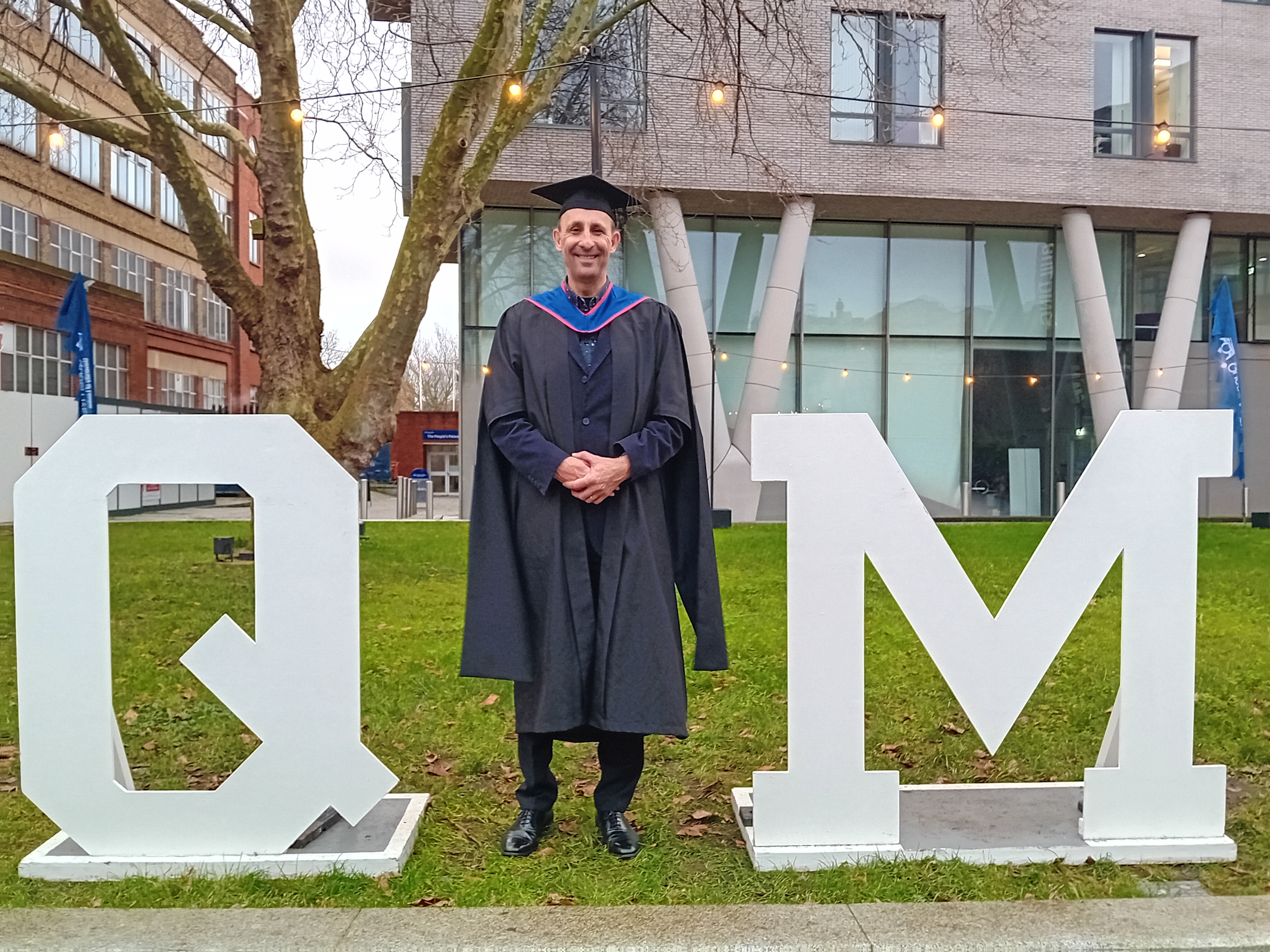 Paul Shepherd wins Drapers Company Postgraduate Prize
Paul Shepherd wins Drapers Company Postgraduate Prize
3 February 2025
Paul Shepherd has won one of QMUL’s Drapers Company Postgraduate Prizes, for his outstanding postgraduate performance during his Astrophysics MSc.
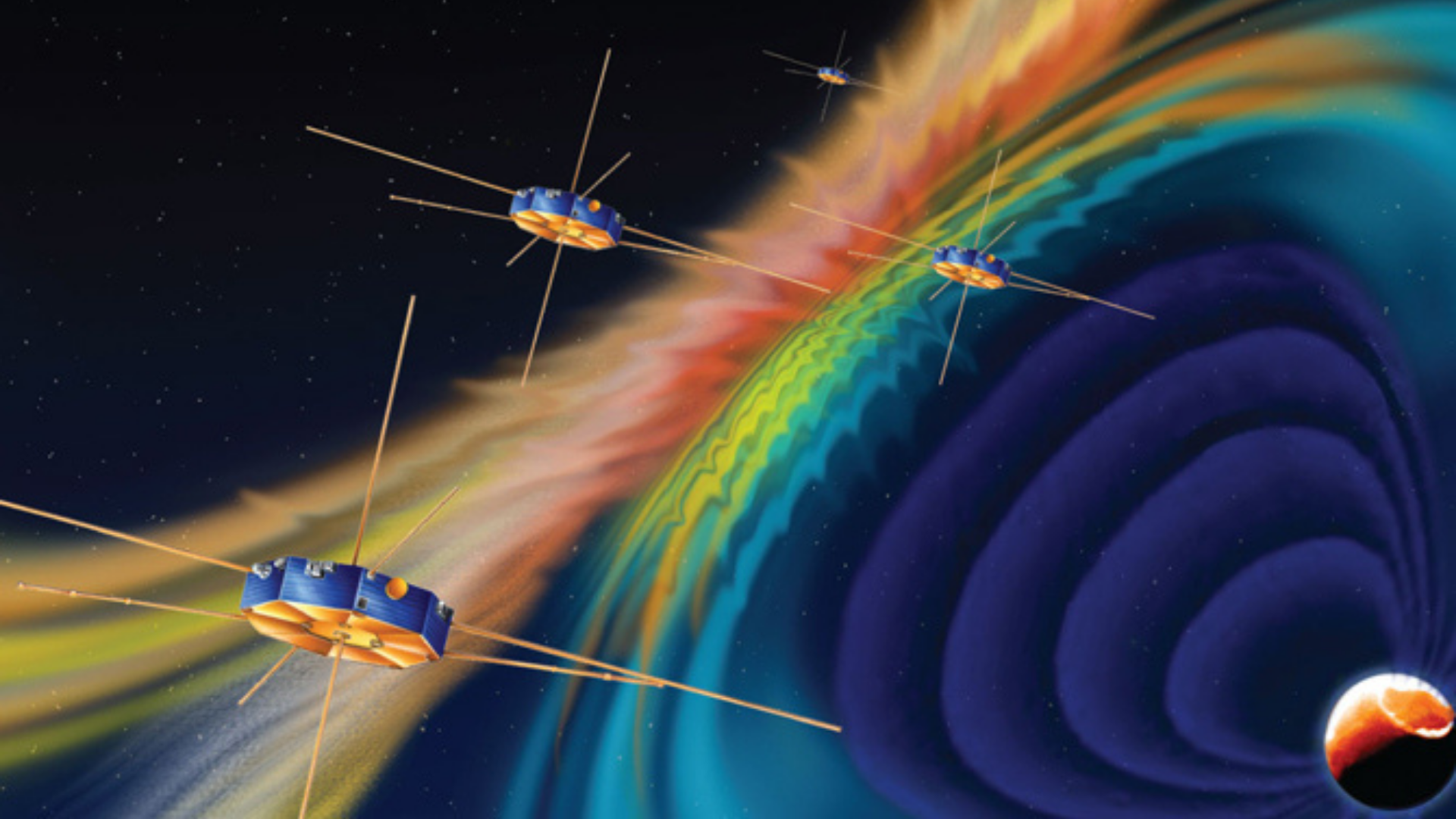 New study furthers our understanding about the origins of energetic cosmic particles in the universe
New study furthers our understanding about the origins of energetic cosmic particles in the universe
13 January 2025
A new study, published today in Nature Communications by a team including members from the QMUL Astronomy Unit, has shed new light on how shock waves throughout the Universe can accelerate electrons to high energies.
 The large scale galaxy distribution is not as symmetric as we thought
The large scale galaxy distribution is not as symmetric as we thought
25 September 2024
Astronomy Unit PhD Student Pritha Paul has led a study, published in Physical Review Letters, showing that large scale galaxy distribution is not as symmetric as we thought.
Postdoc Appreciation Week 2024: Celebrating Our Postdoctoral Researchers
20 September 2024
In celebration of National Postdoc Appreciation Week (16-20 September), Queen Mary recognises the vital contributions of our postdoctoral researchers across all faculties.
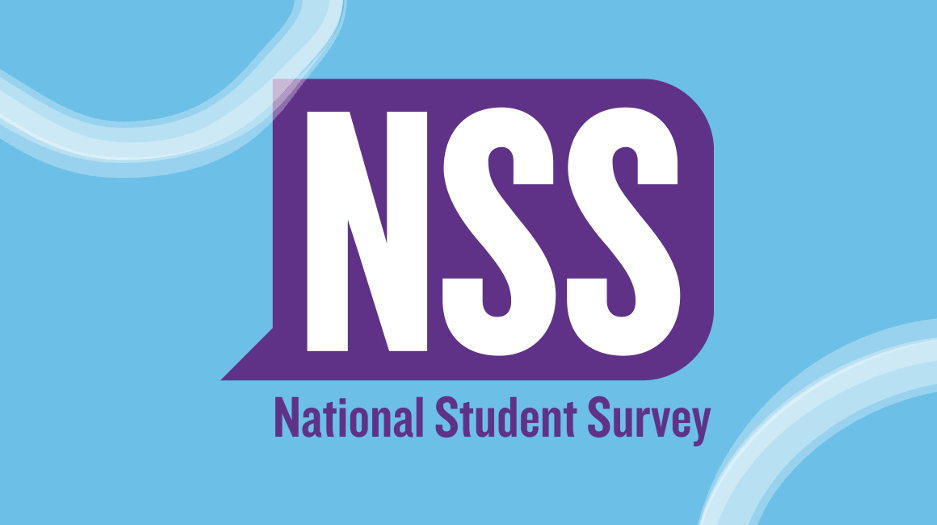 Astronomy and Chemistry Shine in 2024 National Students Survey Results
Astronomy and Chemistry Shine in 2024 National Students Survey Results
19 July 2024
The recently released 2024 National Students Survey (NSS) results have highlighted significant achievements in Astronomy and Chemistry, marking a milestone for the Faculty and contributing positively towards our TEF2027 objectives. These encouraging outcomes underscore our ongoing commitment to delivering a student experience rated as Gold.
We are thrilled to announce Dr. Dimitris Kalogiros won the “Academic Advice Champion” award in the Educational Awards across Queen Mary University of London.
 Jesse Coburn Wins RAS Keith Runcorn Thesis Prize
Jesse Coburn Wins RAS Keith Runcorn Thesis Prize
1 July 2024
Jesse Coburn, a former PhD student at Queen Mary University of London, has been awarded the Royal Astronomical Society's Keith Runcorn Thesis Prize for his doctoral work, which was carried out in QMUL's Astronomy Unit.
Shaping the future of STEM education: Nobel laureate Carl Wieman visits Queen Mary
24 June 2024
Professor Wieman and Queen Mary University of London academics discussed their techniques for effective teaching informed by research.
New NOvA Results Add to the Mystery of Neutrinos
20 June 2024
The international NOvA collaboration has released new findings at the Neutrino 2024 conference in Milan, Italy, on June 17. These latest results add further intrigue to the study of neutrinos, one of the universe's most mysterious particles.
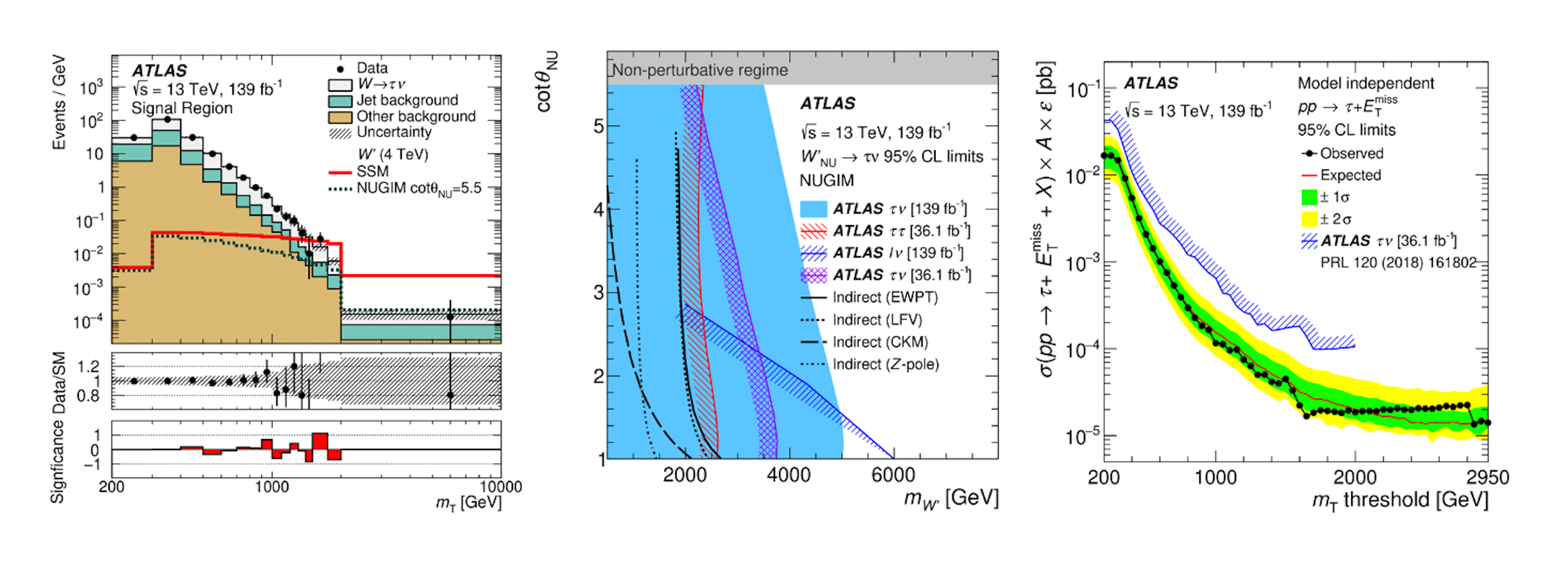 Mono-tau lepton searches with the ATLAS Detector at Run 2
Mono-tau lepton searches with the ATLAS Detector at Run 2
10 June 2024
This paper from ATLAS aims to discover new particles, such as W' bosons, that decay into a tau lepton and large missing transverse energy. No significant excess over the Standard Model expectation is observed, but upper limits of the W' bosons cross sections are derived.
ATLAS Collaboration Unveils New Insights into Z Boson Production with Heavy-Flavour Quarks
10 May 2024
The ATLAS Collaboration at CERN has released groundbreaking results on the production of Z bosons in association with heavy-flavour quarks (bottom and charm quarks). Utilizing the full dataset from LHC Run-2, researchers have enhanced their understanding of the proton's internal dynamics and the distribution of its constituent quarks. These findings offer significant contributions to the field of particle physics and pave the way for more precise theoretical predictions.
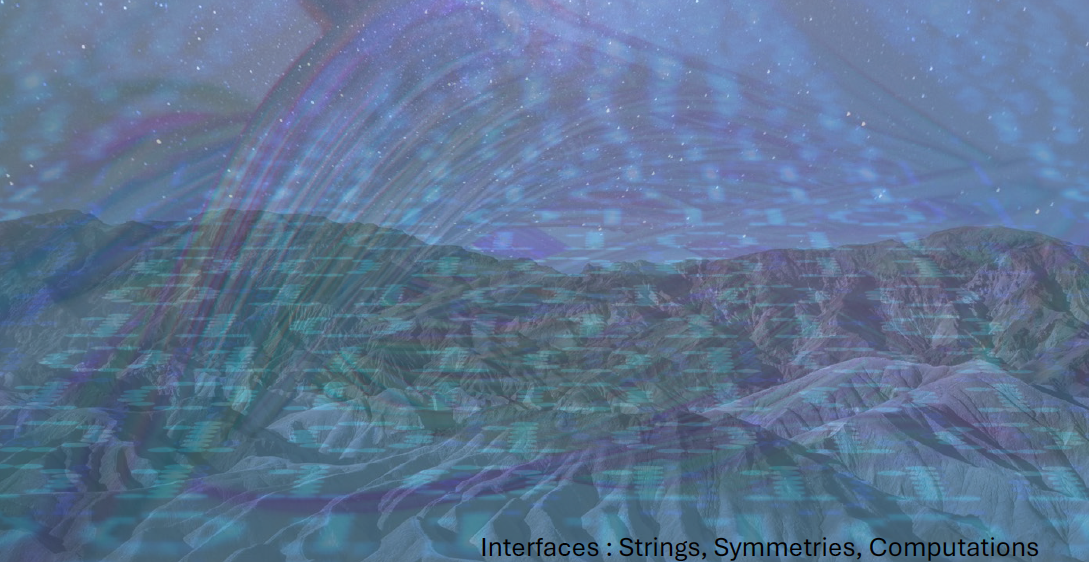 New perspectives on algorithms and complexity from string theory
New perspectives on algorithms and complexity from string theory
15 April 2024
Dr Ramgoolam has worked with “Research Features” to produce an expository article for general audiences on his recent research with an international team of collaborators. The research is developing novel applications of string theory ideas to understand the complexity of classical and quantum algorithms related to symmetries.
PPRC24: PPRC PhD Student Akeem Hart Receives Prestigious Institute of Physics HEPP Poster Prize
5 April 2024
PPRC PhD Student Akeem Hart has won the 2024 Institute of Physics HEPP Poster Prize. His poster showcases the DUNE 2x2 prototype at Fermilab, demonstrating cutting-edge technology for the next-generation of neutrino detectors.
ATLAS Breaks New Ground with First Measurement of W-Boson Width at the LHC
5 April 2024
Since the groundbreaking discovery of the Higgs boson in 2012, the scientific community has been driven by a quest to uncover the mysteries that lie beyond the confines of the Standard Model. Among the lingering questions are those pertaining to the nature of Dark Matter and the puzzling matter-antimatter asymmetry.
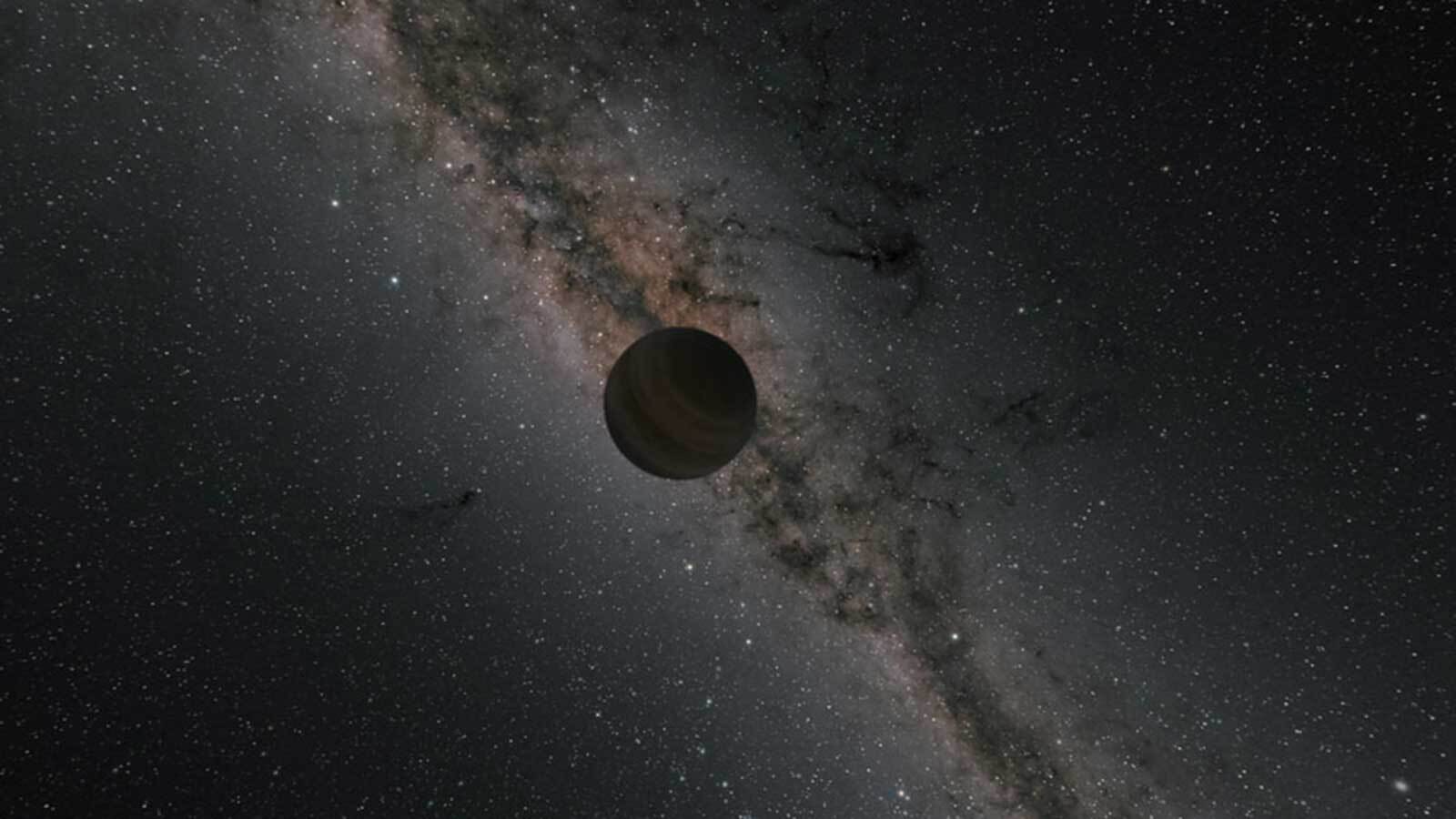 Where are all these rogue planets coming from?
Where are all these rogue planets coming from?
1 April 2024
What are rogue planets and how did they come into existence? This article cites research in a new paper by Dr Gavin Coleman in the Monthly Notices of the Royal Astronomical Society.
First ATLAS measurement of W and Z boson production using Run-3 data
28 March 2024
For over four decades, the study of W± and Z bosons, discovered at CERN’s SPS collider, has been integral to particle physics research. As carriers of the weak force, these bosons play a crucial role in elucidating the electroweak sector of the Standard Model. Moreover, they offer a window into the possibility of new physics beyond the Standard Model, with deviations from theoretical predictions potentially indicating novel particles or interactions.
Quantum interference enhances the performance of single-molecule transistor
28 March 2024
An international team of researchers from Queen Mary University of London, the University of Oxford, Lancaster University, and the University of Waterloo have developed a new single-molecule transistor that uses quantum interference to control the flow of electrons.
Scientist solves 100-year-old problem that could change physics forever
18 March 2024
The concept of a substance's melting point, a cornerstone in understanding its transition from solid to liquid, has long baffled researchers.
The Center for Condensed Matter Physics is recruiting
13 March 2024
We are looking for a new Lecturer in Experimental Condensed Matter Physics to join our group.
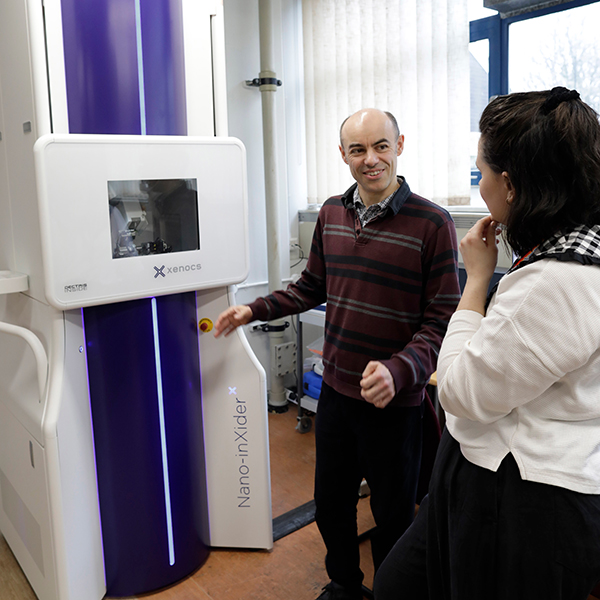 Queen Mary scientists welcome new equipment in a major boost for materials analysis at the university
Queen Mary scientists welcome new equipment in a major boost for materials analysis at the university
11 March 2024
The Faculty of Science at Queen Mary University has acquired a new system allowing us to characterise advanced materials to a new level of detail.
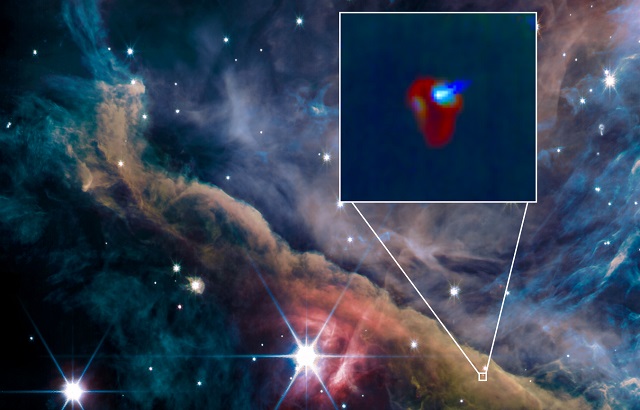 Radiation from massive stars shapes planetary systems
Radiation from massive stars shapes planetary systems
29 February 2024
Astronomy unit members are part of a team that has discovered a unique planetary system where a young star is being stripped bare of its planet-forming material at an astonishing rate
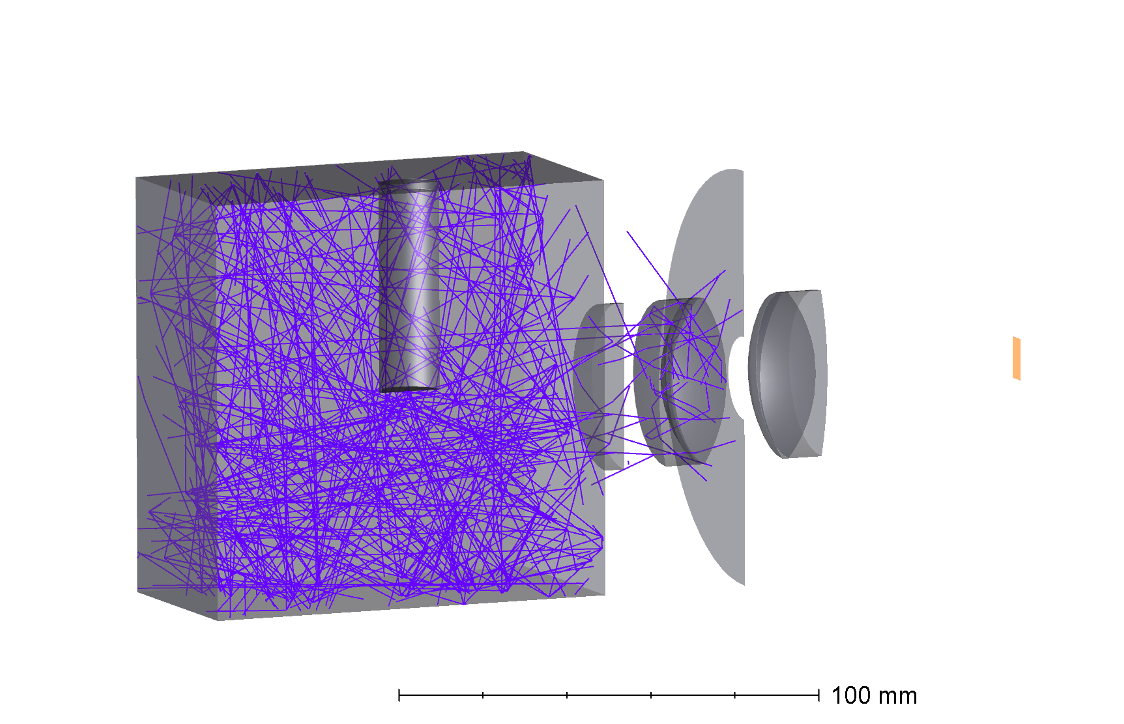 Queen Mary joins the LhARA collaboration
Queen Mary joins the LhARA collaboration
24 January 2024
Queen Mary became a member of the Laser-hybrid Accelerator for Radiobiological Applications (LhARA) collaboration. LhARA is an innovative biomedical initiative that could revolutionise cancer treatment.
Offer Holders Day
23 January 2024
On Saturday, 20 January the Department of Physics and Astronomy welcomed sixth-form undergraduate offer holders for an amazing day of events.
 The Centre for Theoretical Physics is looking to support applications for long-term fellowships
The Centre for Theoretical Physics is looking to support applications for long-term fellowships